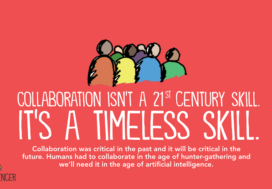The right legal case management software can help lawyers or law firms to effectively organize, analyze, and manage every aspect of their cases including client records, file organization, meet deadlines, document retrievals, time tracking, and billing, etc.
Effective case management remains the backbone of any legal business irrespective of size. It doesn’t only play an important role in building a sustainable client base but also allows legal firms and lawyers to thrive.
This is the definitive guide to choosing the right case management software. If you’re a lawyer or you’re a part of a law firm, you need software that can seamlessly deliver unrivaled client experience.

You have got to see this as part of good customer service, which is the foundation that sustains any firm, be it legal, manufacturing, retail, or eCommerce. But why is that?
Well, over two-thirds of American consumers reported that they would spend more on business brands that offer them superior customer service — this includes legal brands, and so on.
But gone are the days when lawyers and legal firms manually manage legal cases. Worse, some of them still do it in person — juggling with stacks of files that are kept in paper records in safes.
Today, case management and customer service have gone digital and most clients prefer law firms and companies that will attend to their issues promptly online.
More so, considering that many law firms receive a lot of inquiries daily, it can be difficult for the legal customer service representatives to attend to and respond to the clients’ issues in a timely and satisfactory manner.
This is where case management software comes in.
Yes! In this digital age, case management software has become an integral part of a successful legal customer service toolkit, providing a platform to efficiently record, monitor, and analyze legal cases.
What is Case Management Software?
To understand case management legal software and what it does, it is necessary to understand case management.
Case management is the act of keeping detailed records about a particular incident (case) and taking these records through a particular path.
Case management encompasses all the works, such as recording, monitoring, and analysis, involved in the processing of the data, procedures, and other related content that make up a case.
A case can be anything from a service request that must be fulfilled, an investigation that must be conducted, or an issue or incident or that must be resolved.
A case can also refer to any response, service, or transaction that is opened over a period to resolve a request, claim, problem, development, proposal or other complex activities that relate to issues involving or interaction with a particular party like a client, supplier, etc.
A case may involve multiple persons, multiple documents, and/or multiple messages.
For instance, most case files involve the collection of clients’ communications and supporting documentation as well as the processing of documents and reports that need to be managed for audit and compliance.
Cases usually start with the customers’ name and their complaints or issues. The customer service representative would have to examine the request or incidence to gather additional information about it.
A case differs from a project or process in that a case can be completed without necessarily having to finish the entire workflow.
For instance, some cases can be dropped off as soon as the customer’s issue is resolved, while other cases have to go through a full workflow — so that they can be completely dealt with.
Therefore, case management software can be described as an application that enables business organizations and companies to handle case management efficiently.
Case management software helps legal firms and other businesses to manage their clients’ interactions across digital channels like contact forms and emails.
Some case management software even enables legal customer service agents to send communications directly to clients.
Why You Need Case Management Software
Case management software provides businesses with a digital central point to store and track all clients’ case notes.
Other client’s details like contact information, communications, appointment scheduling, and history, and billing can also be stored by the case management software.
Best case management software for lawyers can be used by lawyers and business owners to automatically collect and organize client interactions into one central place. This enables convenient access and a comprehensive view of each client’s record.
With case management software, customer service representatives would only have to log into their accounts, view and manage all clients’ cases at a glance from one place.
And if necessary, categorize these cases and send them to the best agent to resolve them. This ultimately makes the job of customer service representatives easier, ensuring that clients get their issues resolved quicker.
Quick resolution of clients’ cases is essential to boost any business operation. A report by The Next Web that customer service representatives fail to resolve clients’ cases at least 50% of the time.
Any law firm that falls within this category may likely lose its prospects and clients to law firms whose customer service representatives fall into the other 50% that resolve clients’ cases. Think about it.
That being said, here are some of the benefits law firms and businesses stand to enjoy from using the right case management software:
Benefits of Case Management Software
For law firms, lawyers, and other businesses that interact with clients regularly, how do they benefit from using case management software?
Let’s discuss some of the benefits:
-
Case Management Software Reduces Human Error
When dealing with issues and cases with pen and paper, it’s mostly inevitable to make mistakes and very difficult to ensure that everything falls in its proper place.
For instance, notes can get lost and documentation may be filled out incorrectly.
However, law manager software completes these tasks automatically, ensuring that only the essential information is collected based on the necessary steps required.
Forms are generated based on the essential information required which is sent to clients to be signed electronically. This reduces the amount of data transfer, ensuring that no information is lost.
-
Case Management Software Ensures that Cases Can Be Completed From Anywhere
If cases are in pen and paper and stored in safe, agents would have to be in their offices to attend to these cases. But case management software is cloud-based, giving agents the freedom to attend to cases outside their office space – telecommuting.
This is one of the lovely features the case management software has over server-based systems.

So whether you have a central workforce or a globally-dispersed workforce, case management software will make available all of the essential information needed at any time.
-
Case Management Software Offers Case Analysis
Case management software doesn’t only help lawyers, attorneys, and law firms to move cases towards a resolution but also help them to look at trends to determine how well their forms and workflows are performing.
Case management software can also help business owners to determine unique relationships between cases. This enables them to quickly resolve fraud cases or deliver compliance reports.
More so, the case management software can show agents which of their efforts are paying off and which ones should be dropped.
-
Case Management Software Offers Security
Remember that client data is confidential. So knowing that all your customers’ files are safe gives you peace of mind.
Case management software does not only keeps your entire files safe but also performs an automatic and regular data backup, should in case a crash occurs.
-
Case Management Software Keeps Track of Client’s Data
Case management involves collecting and handling lots of client’s information. This means lawyers or customer service agents would be working with thousands of customers and collecting data on lots of data points.
Keeping track of this large data can be a very difficult task, especially without the help of a reliable software tool.
But case management software keeps the entire customers’ data in one place, making it easier for case managers or agents to visualize the data, create reports, and leverage the collected data.
These reports give law firms an overview of how their firms are performing and attending to the client’s case. This will further help them determine where and how their business operations can be handled more efficiently.
-
Case Management Software Makes Collaboration Easy
Another benefit of case management software is that it makes collaboration easy between customer service agents or case managers. “Even in this age of Artificial Intelligence, we still need collaboration,” says John Spencer.

Since the case files are stored in a central cloud-based location, anyone can be given access to the files from anywhere to get the needed information.
Any new communications or information regarding a customer can be easily sent within the case management software, automatically attached to the client’s case file, and promptly available to all who have access to the files.
Here are a few reasons why companies need case management software.
Why Businesses Need Case Management Software
Let’s examine some of the reasons why law firms and other businesses need to start using case management software:
-
It Promotes Organization
Attorneys and law firms generate a large volume of case-related data daily. With a poor data management system, inevitably, case managers may incorrectly organize and store data or miss out on key information.
But with case management software, data are stored accurately in one location, where it can be logically segmented and easily accessed when needed rather than being fragmented.
Critical data, such as case files, tasks, notes, lists, descriptions, and deadlines are organized and unified by the software, enabling case managers to spend very little accessing them.
-
It Increases Productivity
Case management software increases productivity among customer service agents and increased productivity subsequently leads to higher profits.
Case management software eliminates data fragmentation and streamlines several functions, freeing up valuable time for case managers to spend on other useful business operations.
Case management software also improves clients’ retention by increasing the client’s satisfaction.
The software reminds case managers of pending tasks, ensuring that deadlines are met and the client’s cases are resolved timely.
-
It Enables Data Centralization and Staff Efficiency
Case management software is a cloud-based system, making it possible for all stored data to be centralized and accessible to agents who need access to the data irrespective of location.
Law firms and companies with either a centralized workforce or a globally-dispersed workforce can make available all of the essential information needed at any time using case management software.
Whether your key employee is away on vacation or you hire new staff, case management software centralizes all clients’ data, making it possible for new staff to retrieve and upload clients’ data or case files from a single source.
So, do you need case management software?
Yes, if your organization still makes use of pen and paper as its main method of collecting and recording clients’ data.
Some business organizations still rely on a combination of paper and basic software to collect and record the client’s data. This process makes it very hard for them to have full visibility and insight into the data.
Besides paper storage make it impossible to analyze the data.
If your firm still uses basic server-based software or outdated systems, which offer only basic functionality and may prevent case managers from generating reports and insights from the stored data, then you need the case management software.
You need the case management software if you need to improve the accuracy of your clients’ data and want to ensure that all your workers have access to detailed, updated, and consistent client data.
To ascertain that you need the case management software, ask yourself if your current data management process – pen and paper tracking or basic software – is meeting your needs.
If not, you might need to upgrade to case management software. Note that case management software will help you improve efficiency, productivity, and customer base, so it’s worth it.
You need the case management system if you want to:
i) Manage deadlines: Whether you run human services or nonprofit organization or you are a legal professional, and handle lots of clients, one of the greatest challenges you would have to face is handling all the deadlines associated with every case.
The case management system will enable you to manage these deadlines and never miss an important schedule.
Some software comes with an option that enables users to add deadlines that relate to each case.
ii) Properly organize your clients’ files: Case management software will help you to easily keep all data related to a client in one place.
The software enables you to quickly store case description, the contact information of clients, notes, deadlines, task lists related to each case, etc. which you can easily access later.
iii) Coordinate communication with a Client: Keeping your client’s case files and data in the same place makes it possible and easier to access this data whenever you need it.
Imagine looking for old information about a customer, you know how much time you can spend looking for it. But having all your communication in a central place enables you to access all communication whenever and wherever you want.
iv) Work from anywhere: Case management software is cloud-based and is available online. This means that you can access and work on the case file from anywhere provided you have a computer that is connected to the internet.

Case management software enables you to work from anywhere, even from home. All you need to do is sign in from any internet-connected computer and continue your work.
This is particularly helpful if you are on a vacation or want to stay productive in your downtime.
How to Choose the Right Case Management Software?
There are lots of case management software options out there to choose from. So business owners need to find out which one meets their organization’s communication, reporting, and tracking legal cases needs.
Are you looking for the best case management software for your business organization? Here is what to look out for to choose the right case management software:
a) Features: You need to consider the features of the case management software to decide whether it will suit your needs. You can achieve this by asking the following questions:
- Can the software be configured to fit your business needs?
- Can the software grow and adapt with your business?
- Can you attempt minor changes to the software without having to consult the software provider?
- Does the case management software provider offer quality, ongoing support?
- Is it easy to retrieve and report on the data collected by the software?
b) Requirements: Another thing to consider when choosing the right software for your organization is to determine your requirements.
Carefully think about what you want the case management software to be able to do. For instance, what are the current problems experienced by your organization with managing clients or cases?
What are the problems faced with the current software you are using that you wish to solve? Knowing your requirements and the questions you want answers to will help you to choose a suitable system.
c) Security and privacy: These are also other important considerations. Since the safety and privacy of your client information are very important, you need to ask the software provider how safe or secure the case management software is.
Before choosing the software, ask the vendor how they are securing and protecting your data, where the data is stored, how the data is backed up, how frequently the backup data is updated, and whether they regularly test and restore the backup data.
You may also need to consider the standing data privacy legislation of your country.
Perhaps, you are not allowed to store your client data overseas, so ensure that you know the rules that affect you by choosing a particular vendor.
d) Price: Each case management software option has a different price and pricing structure. Foremost, consider software that falls within your budget but with the necessary features you want.
More so, ask the vendor how the payment is structured. While some vendors want a once-off fee payment for the software, others want per location, per usage, per month, etc. fee structure.
If the payment structure is on per use basis, find out what it costs to add more users in the future.
Also, find out with the vendor if software upgrades are included in the cost of the product or not. If not, find out how much it would cost you to upgrade.
e) Industry Standard: To choose the right case management software, you may need to talk to others within your industry or sector to find out what software they use or recommend.
Ask the vendor whether a preview copy of the software is available so that you or your staff can try it out and see if it’s something you can use. Otherwise, ask the vendor whether training can be provided for your staff.
f) Compatibility and Integration: If you have client management software you currently use, find out if it’s possible to move data from it into the new system and find out about the process involved in moving the data.
Also, ask about the possibility of migrating data out of the new software, should you change to a different legal track case management software option in the future.
And finally, find out if the new management software will integrate with other software you currently use.
Implementing a Case Management Software
Implementing a new case management software option follows a similar procedure as any other software. When introducing any new software to a law firm or a large organization, the following must be considered:
1) Evaluate the integration of the software
Possibly you have other systems you currently use within your organization and want to integrate your management software with them.
It is very important to find out about the integration process and what it will cost you because software integration can sometimes be complex and expensive.
2) Build expertise
Organizing one-off training for your staff on how to use the new software may not be enough.
Instead, set up dedicated staff within your organization that will be trained as super-users of the software and who will thoroughly understand the totality of the software.

These well-trained staff would be the point-of-contact for other staff that experience difficulties with using the software or need ongoing training.
They will also send a report back to the software vendor on any problem found with using the software.
3) Don’t be quick to choose a vendor
Even when you’ve got a vendor whose case management software fits your budget and requirement, don’t be too quick to choose the vendor.
Instead, get together a list of about three or four vendors and assess them based on your requirements and budgets.
Request a proposal from each of them. Ask each of them for a preview copy or test version of the software to try out.
Discuss with the vendors and see whether you would be happy working with them in the long-term. You may also ask others within the industry for references before you make your final decision about a vendor or software.
4) Know your budget and stick to it
As stated above, there are lots of case management software options you’ll encounter when searching for the right one. Some have added features and are more expensive.
That doesn’t mean you should be tempted by flashy software to spend more than you can afford.
5) Know your requirements
Don’t just opt-in for any case management software because it’s the latest trend. Instead, know what you need the software to be able to do for you or your organization.
What are your exact needs for the management software? What additions would the software add to your business operations if you get them?
Then you can find a case management software option that matches your requirements without draining your pocket.
There are some case management software options that allow users to make customization based on their requirements.
6) Understand ongoing costs
Ask your vendor beforehand to know about any ongoing costs and find out if it will augur well with you. For instance, ask to know whether your vendor will cover the cost for upgrades and if not, how much you have to pay for them.
Also, ask your vendor to know if adding new functionalities is free or not.
7) Talk to your staff
If you want to achieve success with implementing the case management software, then you need to ensure that all your staff members that will be using the new software are in full knowledge and support of the new system.
There should be a transition plan from the old system to the new system — if your organization already has one in place.
Involve them all in the process, right from the requirements gathering through to the final implementation of the software. Ask for their feedback and take it seriously. Also, find out if they are comfortable with the new software or not once implemented.
Remember, there’s nothing as disappointing as realizing that some of your staff can no longer do their jobs because you’ve just implemented new case management software.
8) When to Seek Professional Help
Whether you are a legal practitioner or you run human services or nonprofit organization, irrespective of the type of organization you run, it is highly recommended that you seek professional help and advice all through the process of shortlisting, acquiring and implementing the case management software.
Having a professional who is well-experienced and fully understands the process can make a huge difference, especially if you work with a complicated mix of processes, services, or locations.
Even if your requirements are very simple, it’s very important to get an expert – an external consultant, an advisor, or a contractor – who is highly knowledgeable at selecting and implementing case management software.
Always remember that the case management software is only useful if it fits the need of your organization. Otherwise, it’s a waste of money and time.
The case management software should make the work your already busy staff members do to become more efficient and easier and not more difficult and confusing, allowing them more time to focus on core social service business.
Final thoughts
Most law firms, attorneys, and corporate businesses operate without case management software while others that use the software settled for basic software options because of the misconception that case management software is expensive.
However, this is nothing but a flawed belief. Cloud based attorney software options are very affordable and would not blow your budget.
With this type of management software, you will be able to increase your efficiency and productivity, increase your client base, and generate more revenue.
Try our case management software option today that puts you more in control.

